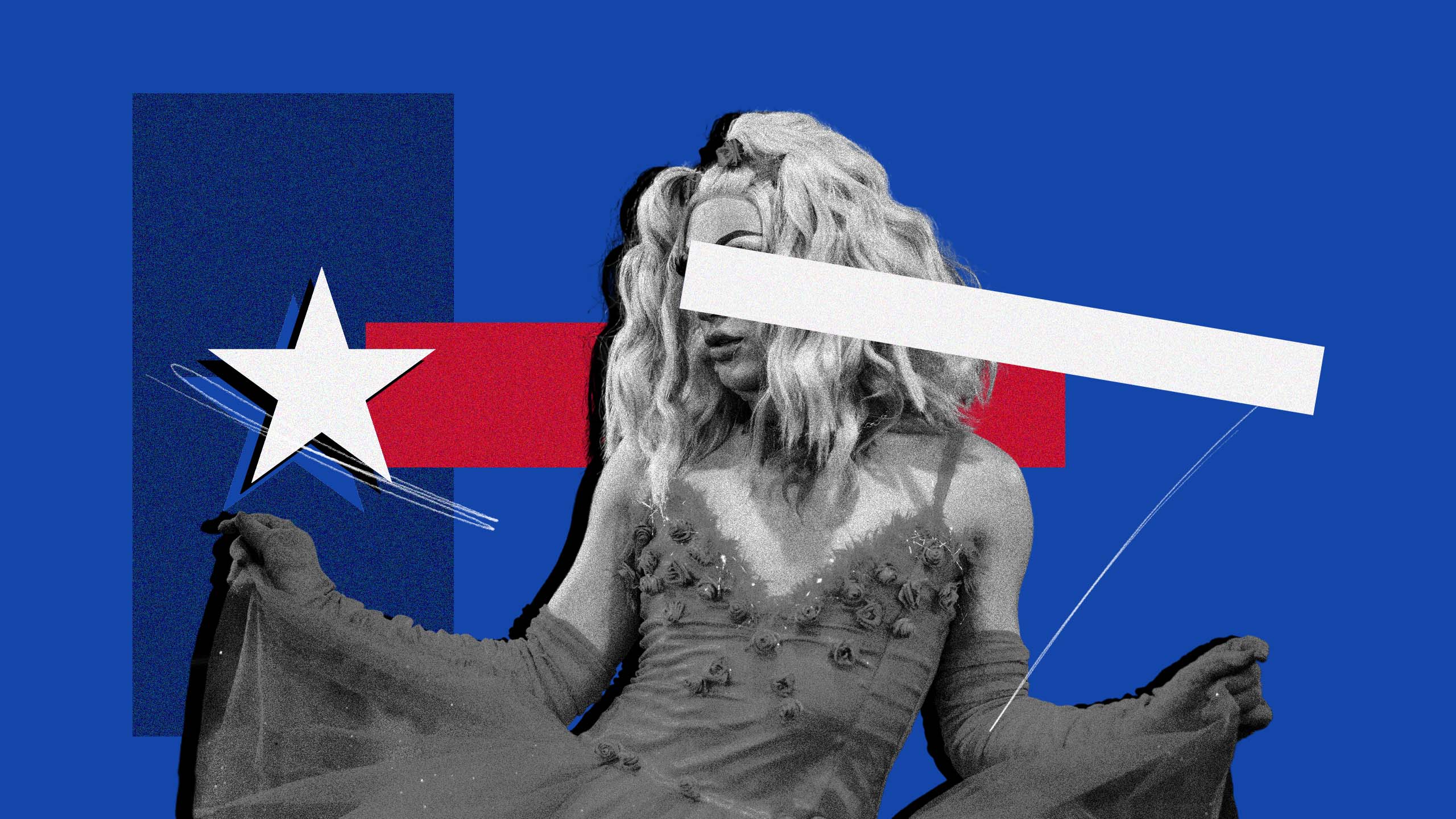Texas lawmakers have pre-filed a bill that would criminally charge venues that have drag shows if they allow minors to enter at any time. Advocates worry that in addition to penalizing LGBTQ2S+ spaces, the wording of the bill could be potentially leveraged to criminalize trans people simply for existing.
Filed Monday by Texas State Representative Jared Patterson, the bill would classify any business that hosts drag shows as a “sexually oriented business,” and defines a drag performance as “a performance in which a performer exhibits a gender identity that is different than the performer’s gender assigned at birth” and appears “before an audience for entertainment.”
The bill amends an existing statute that regulates “sexually oriented businesses,” defined as any venue where at least two people perform nude and where alcohol is served. These are liable to misdemeanour charges on par with vehicle burglary if anyone under 18 enters the premises. The statute also mandates “sexually oriented businesses” to charge entrance fees of at least USD $5 per patron and forbid sex offenders from owning or operating those establishments.
Under the new bill, the state attorney general will also have the ability to sue any venue that hosts drag performances in violation of the bill—which could lead to its potential closure. The bill will be discussed in the next legislative session that starts in mid-January 2023.
Advocates were quick to denounce the bill, and point out the ways in which it could be used to criminalize trans people. “This is a literal ban on trans people performing in any capacity. A trans actor in a musical singing would suddenly make it ‘drag’ and thus result in the play venue being labelled a ‘sexually oriented business,’” tweeted Alejandra Caraballo, a clinical instructor at Harvard Law School’s Cyberlaw Clinic and a former staff attorney at the Transgender Legal Defense and Education Fund.
“If a coffee shop hosts a drag event, it would then be classified as ‘sexually oriented business’ and could not allow minors to enter it again and the state would impose a $5 fee on all customers. This in effect bans all drag by making it impossible to host anywhere.”
Advocacy groups have also spoken out against the new bill. “These legislators are eager to pass the ‘drag tax,’ which would essentially penalize small businesses for hosting drag events by classifying those businesses as ‘sexually oriented businesses.’ That classification is [usually] reserved for more risqué entertainment that requires significantly less costume,” Johnathan Gooch, communications director of Equality Texas, told Xtra, adding that he doesn’t “think most Texans would mistake a little glitter and heavy eyeshadow for something pornographic.”
This week alone has seen several pre-filed bills targeting trans people in Texas, including at least two measures that would criminalize gender-affirming care for minors. Another bill was filed to revoke liability insurance for medical providers who offer that type of care. Earlier this year, State Attorney General Ken Paxton also tried to classify gender-affirming care for minors as child abuse. And Governor Greg Abbott later urged people to report the parents of trans minors who are suspected of receiving gender-affirming care. Many of those investigations are still tied up in court.
In Tennessee, lawmakers also introduced similar legislation to restrict drag performances last week. The Tennessee bill would make it a crime to do drag where it “could be viewed by a person who is not an adult.”
Gooch worries about the effects this new bill will have on queer minors if it is passed. “There’s something so joyful and playful about drag that allows an exploration of gender that subverts normal expectations in a way that allows for young people to explore their own identity,” he told Xtra. He fears that queer young people will lose out on safe spaces where they can freely explore their identity, if laws like those proposed in Texas and Tennessee are passed.
Gooch emphatically rejects the legislators’ argument that the bill aims to protect children from abuse. “What children need protection from is government overreach. Children need safe spaces—at home, to explore their identities with their family, their faith leaders, whatever community they’re a part of,” he says. “And I struggle to find any reason to make a child feel unsafe in places that are designed to be welcoming to LGBTQ2S+ people.”


 Why you can trust Xtra
Why you can trust Xtra


